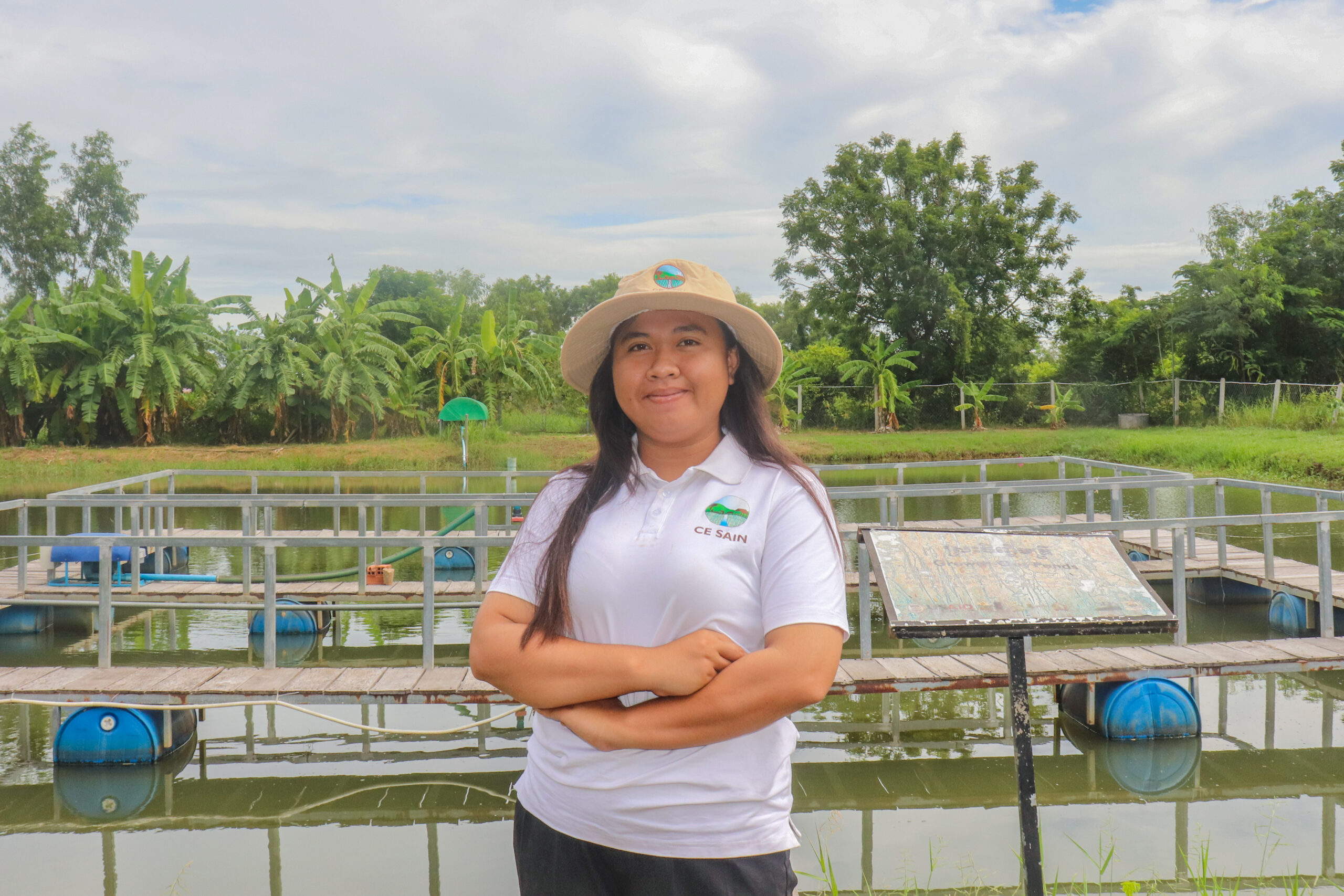WISHH Builds Nigerian Aquaculture Through Strategic Partnerships
In Nigeria, WISHH helps train professionals at Animal Care Laboratories, a leading business that offers livestock feeds, animal diagnostics and animal health products. Although Animal Care’s primary business lies in the poultry sector, it works with over 1,000 fish farmers. The company is an important partner for WISHH’s increasing aquaculture work in Africa’s most populous country—and the world’s sixth-most populous.
Animal Care Executive Director of Animal Husbandry and Technical Services Opeyemi Agbato shared why the strategic partnership with WISHH is building Nigerian aquaculture. “With the knowledge gained from the trainings, our team is enthusiastic and motivated to apply these skills to our diagnostic and awareness programs,” Agbato stated. “We are confident that our efforts can contribute significantly to the growth and sustainability of the aquaculture sector in our country.”
WISHH’s “train the trainers” program helps spread basic knowledge to professionals who then fan that knowledge to fish farms across the country. The recent training WISHH provided helped strengthen water quality testing, created good testing procedures for fish pathogens that cause disease events, and could potentially yield stronger and more efficient fish growth rates. WISHH is filling a knowledge gap with Animal Care as a conduit to transfer research-based knowledge to fish farmers across the country. Sofolabi Sofela, a WISHH technical expert and aquaculturist in the region, notes the potential increased reliance on protein-rich U.S. Soy for fish feed.
“There is a strong line between the survival of fish farms in Africa and more need for feed,” explains Sofela. “As fish farms grow, that means more people in Nigeria can be fed, specifically with the population growth issues we’re facing.”
According to WorldFish, a research and innovation institute, fish is an important part of the household diet in Nigeria. Fish accounts for around 40% of the country’s protein intake, with fish consumption at just over 29 pounds (13 kg) per person per year.
The United Soybean Board, which supports WISHH’s global aquaculture strategy, recognizes these trends could potentially increase demand for U.S. Soy.
Partners Build a Trained Aquaculture Workforce in Cambodia

Photo credit: CE SAIN-CAST
Yunn Sreyvin has joined the Cambodian aquaculture workforce with real-world expertise thanks to close cooperation between ASA/WISHH’s U.S. Department of Agriculture Food for Progress project, the Royal Government of Cambodia and Kansas State University. The effort includes the Royal University of Agriculture, WISHH’s Commercialization of Aquaculture for Sustainable Trade-CAST Cambodia project, and the Sustainable Intensification Innovation Lab at Kansas State University and the Center of Excellence on Sustainable Agricultural Intensification and Nutrition, or CE SAIN. The Royal University established the Center, which is funded by the United States Agency for International Development Cambodia Mission.
Cambodian fish farmers are now hiring graduates of the CE SAIN-CAST internship program, which recruited and paid 11 interns. Another six young people volunteered for the program to jumpstart their careers through the training and mentoring offered by its global aquaculture experts. Those participants learned a wide variety of practical skills, ranging from proper feeding and feed storage to aeration for water quality and fish health management. The internship also introduced them to innovations such as unique floating in-pond-raceway systems; soy checkoff funding supported WISHH in developing the in-pond raceway systems to boost Cambodian aquaculture productivity and climate resilience.
Sreyvin had already earned a bachelor’s degree in fisheries science from the Royal University when she applied for the internship. “With the internship program, I put the theoretical knowledge that I learned in class into real practice. I gained technical knowledge and skills. I am so grateful to the CE SAIN/CAST project partners and donors for establishing this wonderful program to build the capacity of human resources in the aquaculture field. This is a great platform to inspire and match university students to their dream employment.”
She now applies this knowledge at a private farm in Cambodia’s Battambang province. The interns also play a significant role in introducing good aquaculture practices in Cambodia. They receive technical training and other resources to support farmers in meeting the new standards and certification for the quality assurance program that CAST has launched in partnership with the Fisheries Administration of the Ministry of Agriculture, Forestry and Fisheries.
